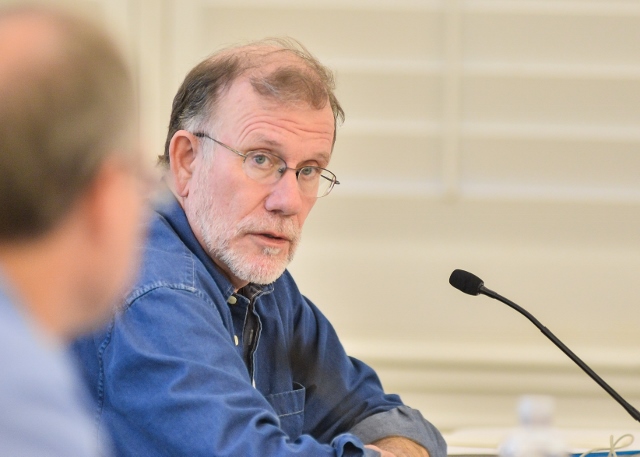I didn’t know Michael Cromartie well, but I knew him well enough to value who he was and what he stood for. The longtime vice president of the Ethics and Public Policy Center, who died last week, was one of that shrinking band of Washington advocates who, in a polarized age, make it their business to reach across the aisle.
Twenty years ago, on the strength of a book I wrote on news coverage of religion — a particular concern of his — Cromartie invited me to Washington to appear on a panel for journalists with Ralph Reed, then nearing the end of his time as executive director of the Christian Coalition. The panel I remember only vaguely, but the dinner the night before is firmly embedded in my mind.
At the table in the nearly empty dining room of the Hay Adams Hotel, there were, besides me, just Reed and Cromartie and Luis Lugo, head of the Pew religion program, which was underwriting the affair. Trying to warm things up, Mike informed Reed that Lugo had written a positive review of his new book (Active Faith: How Christians are Changing the Face of American Politics) for the Christian Century.
By his blank look, Reed made it clear that he’d never heard of that most venerable of mainline Protestant publications. “People think I have power,” he said a while later, “but I don’t.” Then pointing to a lighted window across the street in the White House: “Now Sandy Berger [President Clinton’s new National Security Advisor] — “that’s power.”
For his part, Cromartie mentioned that he was about to go down to Regent University to debate theonomy, the doctrine that biblical law provides the standard by which civil laws should be measured, and to which they ought to conform. A vigorous opponent of its Christian Reconstructionist adherents, he was nevertheless prepared to engage with them in his customarily genial way.
Among evangelicals, Cromartie stood against the generals of the culture war — the Falwells and Robertsons and Dobsons and Jeffresses. And when they began lining up behind Donald Trump, he did not hesitate to denounce them. What particularly galled him was that he had imagined them and their way of conducting themselves to be a thing of the past.
“In the last six or seven or eight years, we now have new leaders to replace those leaders, so that it’s a new branding of evangelicals in our society,” Cromartie remarked during a luncheon discussion at Washington’s University Club a year and a half ago.
“Now, that is all out the window, ladies and gentleman, when Jerry Falwell Jr. has the audacity to come out and endorse Donald Trump, when Robert Jeffress goes on and sells his soul every week on Fox News, encouraging the candidacy of Donald Trump.”
“If this is not a crack up, I don’t know what it is,” he said.
Nevertheless, back in March, he expressed the hope that his co-religionists would moderate the anti-immigrant stance of the Trump administration.
“Evangelicals take seriously the many texts in Scripture regarding welcoming the stranger, the outcast, the sojourner, and the neglected,” he told RealClearPolitics. “This sensibility makes them far more open to immigration than many would imagine.”
In the wake of the administration’s DACA decision, it remains to be seen whether it’s his grim assessment or his hopeful prognostication that prevails. Hope springs eternal, but for now I’m putting my money on crack up.






